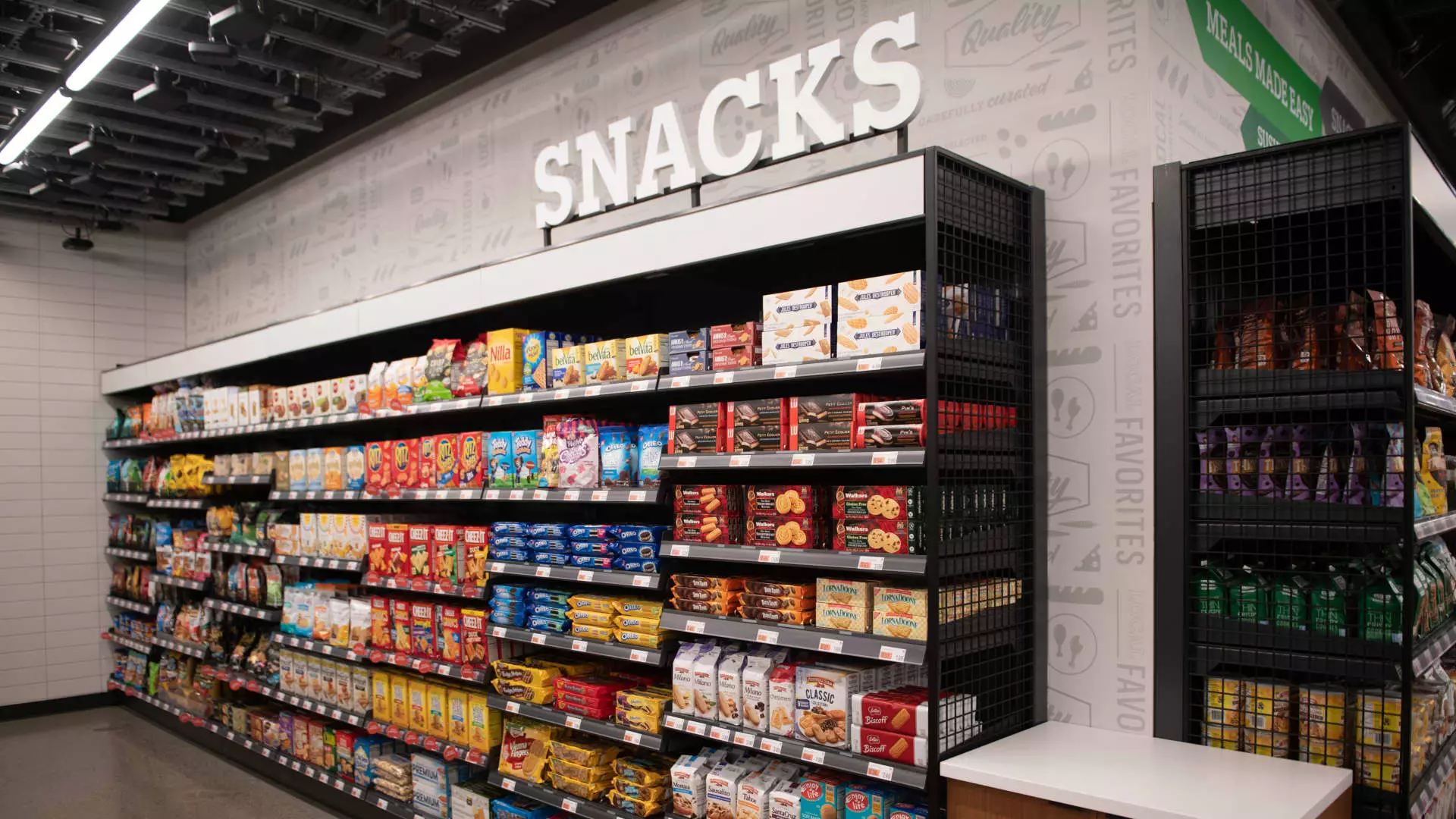In a bold move that marks a significant shift in its business strategy, Kellogg’s, the renowned cereal giant, has announced that it will be spinning off its stable cereal business on Monday. This strategic decision reflects the company’s intention to focus on its faster-growing snack unit, as well as its aim to rebrand itself as Kellanova. Kellogg’s is not alone in this venture, as other food companies have also placed bets on snacking, indicating a wider trend in the industry. However, while the snack market shows promising growth potential, there are concerns about the potential impact of Big Pharma’s obesity and diabetes drugs on the snack industry’s sales.
Over the past decade, Big Food companies have increasingly invested in the snacking sector, particularly as sales in other grocery aisles have stagnated. The demand for savory and sweet snacks is projected to continue rising, with the U.S. market for savory snacks expected to grow by 6% annually from 2022 through 2027, and the sales of sweet snacks anticipated to rise by 4.6% annually during the same period. The prevalence of snacking is attributed to the changing eating habits of younger generations, such as millennials and Gen Z consumers. These demographics tend to consume smaller meals at closer intervals, providing more opportunities for snacking.
While food companies are banking on the snacking trend, the rise of Big Pharma’s obesity and diabetes drugs poses a potential threat to the industry. Novo Nordisk’s Wegovy and Ozempic, known as GLP-1 agonists, have gained momentum due to their efficacy in aiding weight loss. These drugs mimic a gut hormone, effectively suppressing appetites and even causing aversions to high-sugar and high-fat foods – a category that includes many popular snack brands. In the fourth quarter of 2022 alone, over 9 million prescriptions for GLP-1 drugs were written in the U.S., with projections indicating that the number of patients taking these drugs could reach 24 million by 2035. This could potentially result in a 3% decline in consumption of baked goods and salty snacks, which spells trouble for companies like Hershey, Mondelez, PepsiCo, General Mills, and Kellogg’s successor, Kellanova.
While fears of the GLP-1 drugs impacting snack sales are valid, not everyone in the industry agrees with this assessment. Smucker CEO Mark Smucker, following the acquisition of Twinkie maker Hostess Brands, expressed confidence in the future of snack brands, arguing that consumers will continue to seek different types of snacks. Furthermore, the high cost of GLP-1 drugs, with a list price of approximately $1,000 per month, may limit their accessibility to a broader population. Some insurance providers do not cover these medications, and lower-income individuals, who are likely to consume indulgent snacks, may be less inclined to afford them. Additionally, the weekly injections required for GLP-1 drugs and the potential for weight regain if the treatments are discontinued present challenges for the enduring impact of these drugs.
While the potential impact of GLP-1 drugs on snack sales cannot be ignored, the changes are not expected to occur overnight. Food companies will have time to adapt to shifting consumer behavior and evolving market dynamics. They will likely focus on innovation and portfolio reshaping efforts to align with changing consumer preferences. Some companies, such as PepsiCo and Mondelez, have already made moves to acquire smaller brands that offer healthier snack options. Moreover, these companies are investing in their research and development teams to create new formulations that replicate the taste of full-sugar and salt versions of snacks. For instance, Accenture’s Wright envisions a future where a healthy Oreo could be indistinguishable from its traditional counterpart. This emphasis on creating healthier alternatives and diversifying product portfolios reflects the industry’s commitment to meeting consumer demand while navigating potential challenges.
The rise of snacking culture has prompted major food companies to pivot towards the snack sector, as evidenced by Kellogg’s decision to spin off its cereal business. However, the emergence of Big Pharma’s obesity and diabetes drugs raises concerns about the impact on snack sales. While the long-term effects remain uncertain, food companies must navigate the changing landscape by innovating and reshaping their portfolios to adapt to evolving consumer preferences. Despite the potential challenges posed by these drugs, the allure of snacks remains strong among consumers, and there are counterarguments to suggest that snack sales may not be as heavily impacted as initially feared. Only time will reveal the true extent of the influence of Big Pharma’s drugs on Big Food’s sales.


Leave a Reply